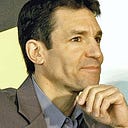Member-only story
The Internet Is Littered with Dubious Diet Tips
Let’s set the record straight
The prevailing narrative about nutrition is that everything experts have long thought true has been proven wrong. That narrative is titillating and provocative, but it’s false. We’re all entitled to our own opinions, but not to our own facts.
Here’s some of what’s wrong with the idea that everything we know about nutrition is wrong:
The paleo diet is a panacea.
Eating and living like our Stone Age ancestors actually might be good for us, but not when the paleo banner is unfurled preferentially for bacon, sausage, and burgers. We can’t know how a true paleo diet would support the modern lifespan, and we never will: Everything our forebears ate in the Stone Age is extinct. They lived on wild game and wild plants, not industrially produced burgers and bacon. Most paleo marketing is classic, 21st-century hogwash.
The ketogenic diet offers unique benefits.
The ketogenic diet was once called “Atkins.” Since its inception, it has had ample opportunity to make everyone thin, vital…

